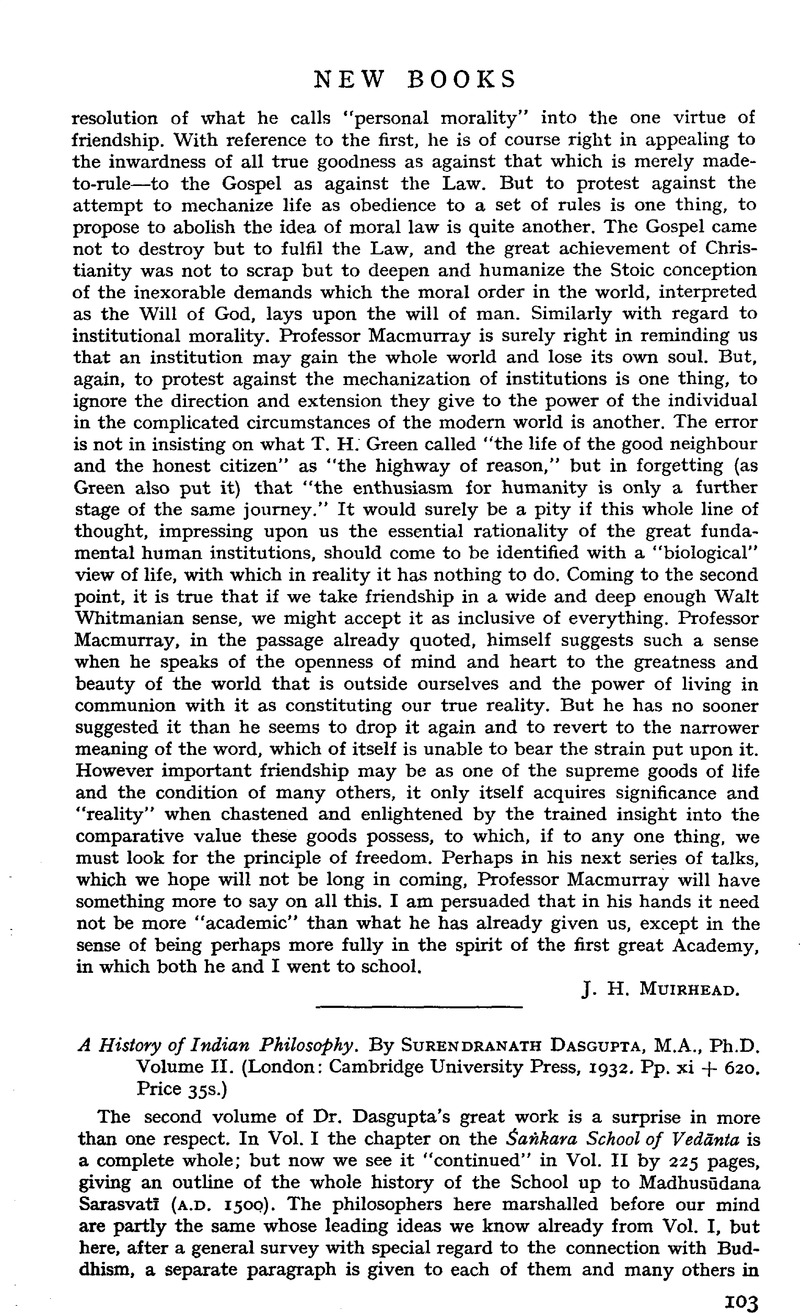No CrossRef data available.
Published online by Cambridge University Press: 25 February 2009

page 106 note 1 Which view requires a proof of the kind nowhere found in Das Gupta’s work (and purposely excluded from it, like all controversy; see Preface, p. vi), viz., one on strictly philological lines. This will presumably be undertaken by Dr. Belvalkar in the long-expected third volume of his History of Indian Philosophy, and might become a success so far as the older part of the Gïtå (Chapters I-XII and part of XVIII, in our opinion), is concerned. Das Gupta seems to look at the Gïtå as the work of one author, or at least of one age.
page 107 note 1 This interpretation of the difficult passage is my own; the commentaries have nothing satisfactory. It is in perfect agreement with the second half of the verse where the famous phrase gunä gunesu vartante can mean nothing else but “The Gunas as instruments (senseorgans) are engaged in the Gunas as (sense-)objects” (Sankara).
page 107 note 2 For these are, of course, included in the “manifest existences” (vyaktayah), which is an argument, among others, against D. G.’s holding that those categories are, according to the Gita, apparently not derived from a higher principle.
page 107 note 3 This is nowhere done in the older Up Jpamsads nor in any of the later ones so far as these can be shown to have been known to the author of the Gita.